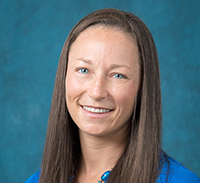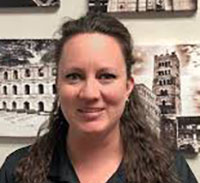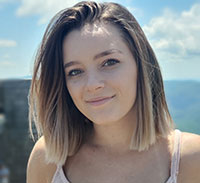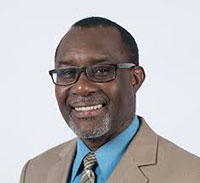With its beautiful campus and expansive facilities, Florida Gulf Coast University is a virtual magnet for summer camps.
This year, however, the word “virtual” gets twisted a bit: In 2020, FGCU is a magnet for virtual summer camps.
Because of the COVID-19 crisis, our picturesque campus and its slick educational and recreational facilities have largely been cut off from group activities during the spring and summer of 2020. As a result, FGCU lost a great recruiting tool — on-campus camps, which often bring younger students to the university for their first extensive taste of the collegiate experience.
But the pandemic couldn’t strip FGCU of perhaps its greatest asset — a talented and resourceful faculty and staff.
That’s why spring and summer academic instruction was able to successfully continue remotely. And that’s also why no less than 10 summer camps were successfully orchestrated from a distance by Campus Conference Programs (CCP), making FGCU a State University System leader in that area.

“All of our in-person camps were unfortunately canceled due to COVID-19 this summer, and FGCU is one of the only SUS institutions coordinating virtual camps through a central department,” said Teri Bigos, CCP manager. “The central coordination, along with our partnerships with Human Resources, General Counsel, Information Technology Services and others, is ensuring consistency — but more importantly, safety — for all of our virtual camps as we make the very best of our situation in 2020.”
A virtual camp research survey conducted this summer by Campus Reservations and CCP staff members found that FGCU and the University of Central Florida are the only two SUS institutions that centrally coordinated all virtual camps and set forth compliance standards. In fact, some universities — including the University of Florida and Florida State — canceled all summer camps entirely.
That didn’t happen at FGCU. If it had, the inaugural BEaM (Bootcamp for Engineering and Mathematics) program — offered in two, 10-day sessions throughout June by the U.A. Whitaker College of Engineering and the Department of Mathematics — wouldn’t have been able to help 35 incoming freshmen develop the math proficiency and study skills they’ll need in engineering and construction management coursework. Dr. Lisa Zidek, associate dean of the engineering college, pushed to put the program online, and, with the support of Dean Richard Behr, was among about 15 faculty members who contributed instruction for the boot camp.

“We created a class in Canvas, and the professors either pre-recorded or conducted live lessons along with activities,” said Julie Rose, outreach specialist for Whitaker College. “We boxed up all the supplies and shipped them to each student so they could engage in the activities from home. At the start of the program, the students took a pre-assessment, and from there, a program called ALEKS created individual modules based on the math needs of each student. The students were then able to work on their skills with the support of a student mentor/tutor to improve their math skills before starting classes in the fall.”
The mentors — FGCU engineering students entering their senior year — met with program participants via Zoom. In addition to the lessons, students met with their department chairs, got a virtual tour of the engineering facilities, learned about resources on campus and participated in student-success skill workshops. Besides engineering-specific material such as programming and mechanical controls, landfill design, biomechanics and motion capture, aerogels, and bridge designs, other camp topics included exploring sustainability, getting started in research, time management, and critical thinking and problem-solving.
“We are looking forward to this program being offered each summer to support incoming engineering freshmen,” Rose said. “The feedback so far has been great.” Of course, Rose noted that many of the participants also said they would like the program to be offered in-person, on-campus, which it ideally will be in the future.

One of those participants, Isabella Marcoux, an incoming environmental engineering student from Cape Coral, said the program “helped to show us ‘BEaMers’ a glimpse of what our college life, academics and struggles will look like, as well as some insights on how to manage our time.”
“The program also showed how our engineering degrees may be used in our future careers, giving us something to connect what we imagined in our heads to real, on-site scenarios,” Marcoux said. “For instance, Dr. (Osman) Karatum’s aerogels session was not only a really fascinating thing to learn about, but he also showed us how he has used them in his field.”
The program also introduced Marcoux to, and helped her overcome, freshman fears. “There were some moments that I did not understand some of the concepts and I was afraid to ask for help,” she said. “However, once I finally asked a professor for help, I realized it is not so scary, and they do care about making sure we get the most out of the program.”
Michael Meeks, another incoming environmental engineering major from Avon Park, liked that the BEaM program introduced him to older peers who have been through three years of what he’s about to begin.
“This was a really neat way to learn about my major, the College of Engineering, and all the other people involved with the creation of BEaM,” Meeks said. “Although the program was entirely online, there were some extremely informative and intriguing modules that explored every aspect of engineering and construction management. Some of the conversations with professors were fascinating, whether it be listening to their research plans or even hearing about their life stories and future plans.”
While Meeks admitted there were some minor communication issues at times, he said those problems won’t exist once the program shifts to the in-person format. “I was excited to be a part of this program, and I enjoyed the experience overall,” he said. “I hope this type of learning experience can continue in the future, and I hope I can be a part of it (as a tutor/mentor) later on in my college career.”
While Marcoux and Meeks were part of an innovative FGCU-sponsored summer camp devoted to prepping already-accepted students for Eagle life, other virtual camps this summer were designed to educate — and hopefully cultivate — Eagles of tomorrow, younger students still in middle and high school. Many of these camps involved outside partners such as The Immokalee Foundation, which teamed up with FGCU’s Frank and Ellen Daveler and Sandra Kauanui School of Entrepreneurship for a monthlong virtual camp for 18 Immokalee High School students culminating in a business-pitch competition July 14 on Zoom.
Besides the Whitaker Center for STEM Education, other FGCU programs heavily involved in the planning, curriculum and instruction of these sessions were TRIO Services and the Multicultural & Leadership Development Center.

One of the FGCU faculty who’s an annual fixture as summer instructor and role model is Dr. Claude Villiers, associate professor of environmental and civil engineering. Villiers, who joined the faculty in 2006, is a transportation expert who staring working with National Summer Transportation Institute camps while at the City College of New York. In 2017, Villiers developed the first NSTI camp at FGCU, and he has been part of the annual on-campus, two-week, residential STEM Academy for high school students sponsored by Community Outreach that had six successful years before it had to be canceled this summer due to coronavirus. In all, Villiers has helped reach almost 400 Southwest Florida prep students collectively through these camps.
Best of all, Villiers, who has set up two July sessions at The Immokalee Foundation STEM Camps in which local students will work on a virtual project with peers at the Brookhaven National Laboratory in New York, has been well-prepared himself to conduct a distance camp despite the pandemic obstacles.
“For the last seven years, I have developed and adopted ‘hybrid’ class technology on all courses that I have taught at FGCU,” Villiers said. “This blended mode of teaching pedagogy takes advantage of the best features of both face-to-face and online learning. It provides the opportunity for students to learn course materials in a variety of engaging, motivating and valuable ways.”
That’s the way it had to be this summer — instruction and guidance delivered in a “variety of engaging, motivating and valuable ways.” Call it a virtual victory for FGCU’s determination to deliver the summer-camp experience, whatever it takes.